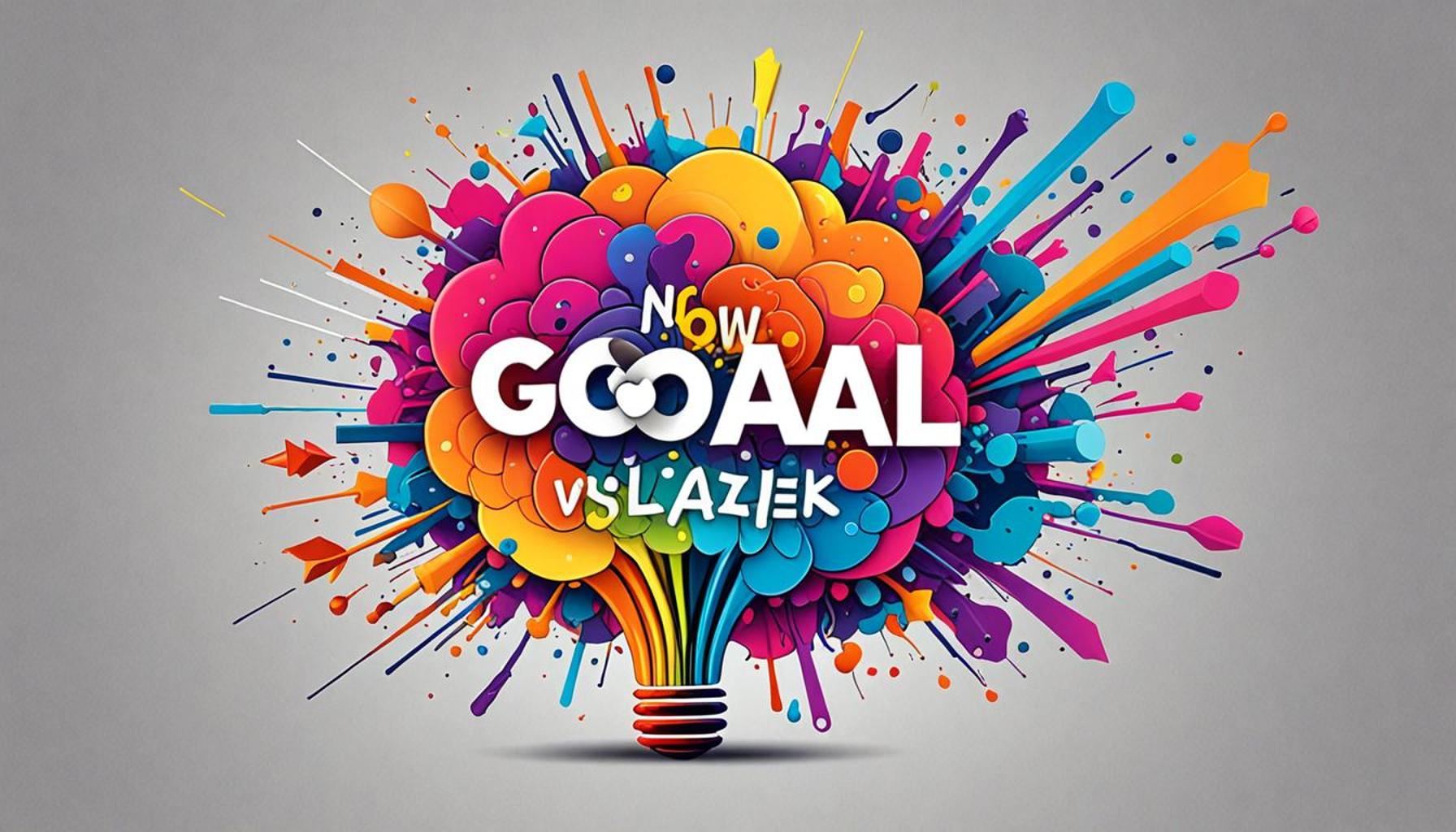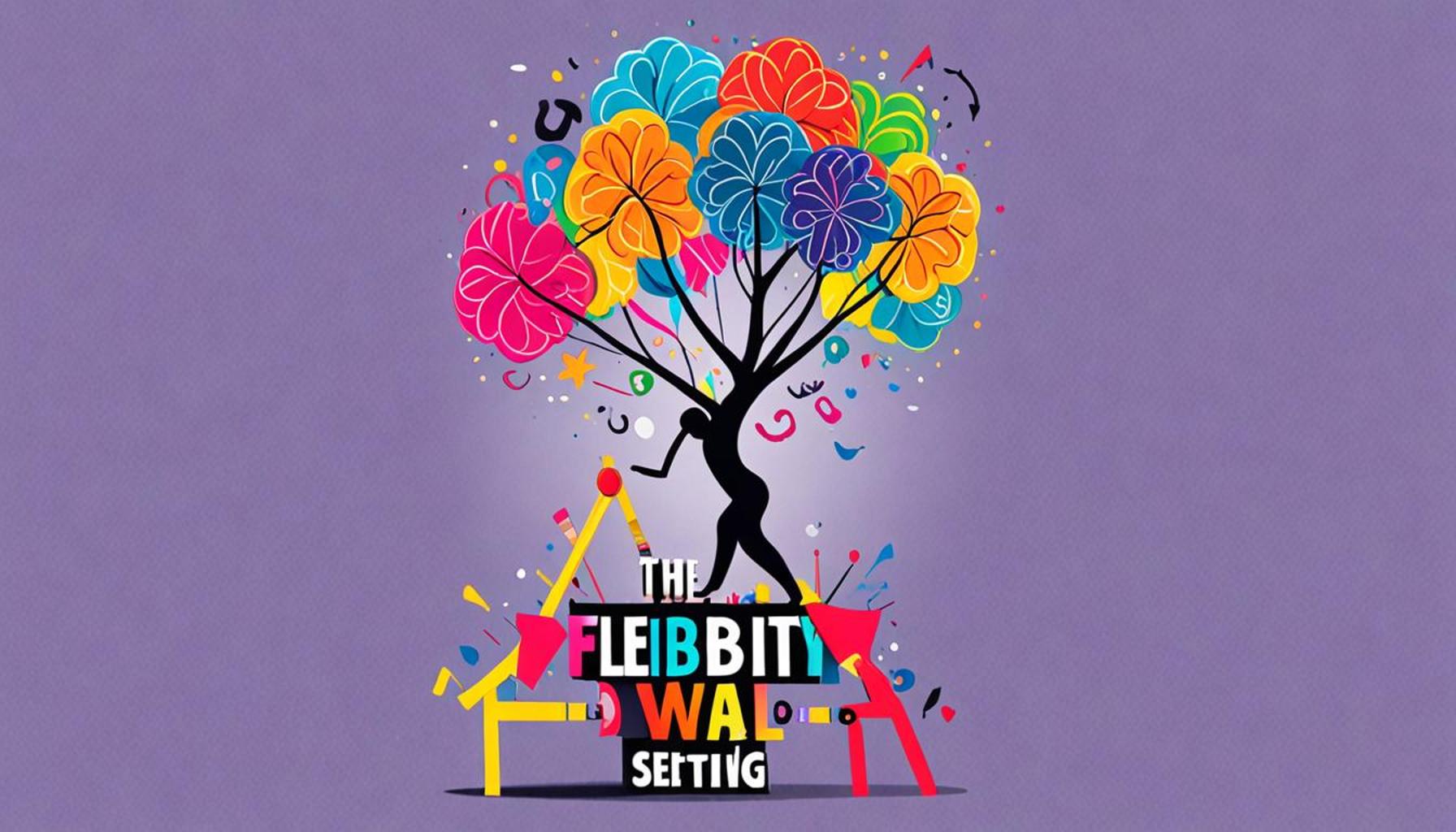The Importance of Setting SMART Goals to Foster a Growth Mindset in Young Professionals in Nigeria

Understanding SMART Goals
The application of SMART goals can significantly enhance a young professional’s journey in today’s competitive landscape. Each component of the SMART goal framework—specific, measurable, achievable, relevant, and time-bound—offers a unique advantage in personal and career development. For instance, when a young graduate from a Nigerian university aims to land a tech job, a specific goal might be “to apply for five software development positions by the end of the month.” This clarity acts as a roadmap, eliminating ambiguity and enabling focused effort.
Importance of Measurable Goals
Furthermore, the measurable aspect encourages tracking progress, which is crucial for maintaining motivation. If the aforementioned graduate tracks applications submitted, responses received, and interviews scheduled, they will have quantifiable benchmarks to monitor. For example, if they set a goal to attend at least two networking events each month, each event attended can serve as an indicator of progress, making the goal more tangible and rewarding.
The Achievability Factor
The achievable characteristic ensures that goals are realistic. For young professionals in Nigeria, aspiring to secure a position at a multinational corporation within a week might not be feasible. Instead, a more attainable goal could involve completing an online certification course in digital marketing within three months, which enhances their skill set while remaining within reach. Setting attainable goals lays the groundwork for sustained growth and increased confidence.
Ensuring Relevance
Next, the relevant dimension emphasizes the importance of aligning goals with both personal aspirations and the demands of the marketplace. In a nation where industries like technology, agriculture, and renewable energy are on the rise, young professionals must mirror these trends in their personal goals. A young entrepreneur might focus on developing a mobile application that solves local agricultural challenges; such a goal not only resonates with their personal vision but also meets a critical market need, reinforcing their purpose.
The Power of Time-Bound Goals
Lastly, the time-bound element introduces a sense of urgency that propels individuals toward their objectives. By setting concrete deadlines, professionals are less likely to procrastinate. For instance, if a young professional in Lagos sets a goal to secure an internship in a specific tech company within six months, this time constraint ensures accountability and fosters a proactive attitude.
Ultimately, the impact of SMART goals extends beyond individual achievements; they serve as a catalyst for broader economic growth in Nigeria. By nurturing a culture of ambition and adaptability, young professionals can contribute to a dynamic workforce capable of fostering innovation and driving sustainable development.
As we continue to unpack the significance of goal-setting in professional settings, it will become increasingly clear how these strategies not only elevate personal careers but also play a crucial role in shaping Nigeria’s prosperous future. Embracing the growth mindset that SMART goals cultivate is essential for navigating the complexities of a rapidly evolving economy.
LEARN MORE: This related article may interest you
The Role of SMART Goals in Cultivating a Growth Mindset
Understanding the significance of SMART goals is fundamentally tied to nurturing a growth mindset, especially for young professionals navigating the evolving job landscape in Nigeria. A growth mindset, as coined by psychologist Carol Dweck, is the belief that abilities and intelligence can be developed through dedication and hard work. This outlook is essential for young people in Nigeria, as they face unique challenges and opportunities in their pursuit of success.
Resilience through Challenge
By setting SMART goals, young professionals gain resilience against the inevitable setbacks that come with career building. The reality for many in Nigeria can include fierce competition in the job market, limited resources, and fluctuating economic conditions. For example, when a young architect aims to complete a design project for a local community within a realistic timeline, they are inherently training their brain to thrive on challenges rather than falter in the face of adversity. SMART goals help in creating an environment that fosters persistence, allowing individuals to embrace challenges as part of the learning curve.
Building Reflective Practices
Moreover, setting specific and measurable goals empowers young professionals to engage in reflective practice. This reflective nature is crucial for personal and professional development. For instance, an aspiring teacher might set a goal to enhance pedagogical skills by enrolling in three educational workshops over the next few months. By regularly evaluating their progress—such as reviewing feedback from peers or experimenting with different teaching methods—they can develop deeper insights into their capabilities and areas for improvement. Reflection based on measurable benchmarks can shift perspectives and motivate continuous learning.
Networking and Collaboration Opportunities
In Nigeria, collaboration and networking are pivotal for career success, especially for young professionals. By establishing SMART goals that emphasize networking, individuals can open doors to new opportunities. For example, a tech enthusiast might aim to connect with ten industry professionals through social media platforms each month, fostering relationships that could lead to mentorship or job opportunities. This strategic approach not only aids in personal growth but also strengthens connections within the professional community.
Step-by-Step Goal Achievement
The ability to break down long-term aspirations into manageable, shorter-term goals is another critical advantage of the SMART goal framework. Young professionals can transform their dreams into reality through a structured approach. Below are practical examples of how this can be effectively implemented:
- Focusing on Skill Development: Setting goals to obtain specific certifications related to one’s field.
- Enhancing Public Speaking: Practicing and setting a goal to speak at community events or local seminars.
- Improving Financial Literacy: Committing to reading three financial management books within a quarter.
This method allows for a clear focus and enables young professionals to track their progress towards larger ambitions. The beauty of SMART goal-setting lies in its ability to turn aspirations into actionable items, facilitating continuous growth and adaptability in a context as dynamic as Nigeria’s.
As we further explore the intersection of SMART goals and a growth mindset, it becomes increasingly clear how these strategies align with the vision of a progressive Nigerian workforce ready to innovate and lead.
The Importance of SMART Goals for Young Professionals in Nigeria
In Nigeria’s rapidly evolving economic landscape, young professionals are increasingly called upon to develop skills and mindsets that can propel their careers forward. One critical component of personal and professional development is the practice of setting SMART goals. This approach not only enables individuals to clarify their objectives but also fosters a growth mindset, which is essential for navigating the challenges of today’s competitive job market.
SMART goals, which are defined as Specific, Measurable, Achievable, Relevant, and Time-bound, offer a structured framework for young professionals to articulate their aspirations. By breaking down larger ambitions into manageable tasks, these professionals can track their progress and stay motivated. For instance, instead of aspiring to “improve in my career,” a young professional could set a goal such as “attend two networking events each month for the next six months.” This level of specificity lends itself to a clear action plan.
Furthermore, setting SMART goals encourages young professionals to reflect on their experiences and learn from setbacks. In a country where the workforce is often characterized by unpredictability, the ability to cultivate resilience through a strong growth mindset is invaluable. This resilience empowers young professionals to view failures as learning opportunities, thus enhancing their adaptability over time.
Moreover, having clearly defined objectives increases accountability. When young professionals share their SMART goals with mentors or peers, they are more likely to remain committed and motivated to achieve them. As a result, this collaborative approach not only nurtures individual growth but also fosters a culture of support and encouragement within teams, ultimately benefiting the entire organization.
| Advantage | Impact |
|---|---|
| Clear Direction | Empowers professionals to focus on actionable tasks. |
| Enhanced Accountability | Increases commitment through social support and mentorship. |
By incorporating the principle of SMART goal setting into their strategies, young professionals in Nigeria can not only enhance their career prospects but also contribute meaningfully to their organizations and the national economy. Keeping a focus on personal development empowers them to embrace a growth mindset, ultimately leading to a more fulfilling professional journey.
CHECK OUT: Click here to explore more
Fostering Accountability and Community Engagement
Accountability is a vital component in the journey of personal and professional growth, especially for young professionals in Nigeria. By setting SMART goals, individuals not only define their objectives but also create a framework for accountability that can drive performance improvements. When a young entrepreneur sets a goal to launch a startup by a certain date, sharing this goal within their community or professional circle fosters an environment where peers can provide support and hold one another accountable. This collective responsibility enhances commitment and encourages a culture of constructive feedback, essential elements that reinforce a growth mindset.
Creating a Supportive Network
Moreover, networking doesn’t just serve to expand professional connections; it also constructs a support system that is invaluable for young Nigerians. Setting SMART goals related to community engagement—such as volunteering for local NGOs or participating in professional associations—can significantly enhance relationships and promote skill sharing. For instance, a young engineer may set a goal to collaborate with a fellow engineer on a project aimed at enhancing local infrastructure. Such collaborations lead to a sharing of knowledge and resources, thereby fostering a larger community committed to collective growth.
Leveraging Technology for Goal Tracking
In today’s digital age, leveraging technology to track and achieve SMART goals is also gaining momentum among Nigerian youth. Utilizing apps and digital tools that allow for goal setting, reminders, and progress tracking can enhance the process significantly. Young professionals can categorize their goals into personal, academic, and professional, thereby maintaining a structured approach. For instance, a marketing professional might use specific software to set a goal to increase social media engagement by 30% over three months. This tech-savvy approach not only keeps them organized but instills discipline that encourages a consistent growth mindset.
Celebrating Small Wins
Recognizing and celebrating small wins is an essential aspect of maintaining motivation while pursuing larger goals. Young professionals in Nigeria often experience a plethora of obstacles that can dampen their spirits. By focusing on SMART goals, individuals can identify milestones along their path that deserve recognition—be it landing a client, completing a course, or gaining commendation for their work. This act of acknowledgment boosts morale and reinforces the belief that progress, however small, is valuable. Celebrating achievements builds a sense of community and encourages others to pursue their goals with renewed vigor.
Vision for Long-Term Success
Finally, young professionals in Nigeria can significantly benefit from a clear vision that accompanies their SMART goals. This vision serves as a compass that guides their decisions and actions toward a fulfilling career. When a recent graduate sets a long-term goal of becoming an industry leader in their field, setting smaller, actionable SMART goals allows for a step-by-step approach to realizing that vision. The alignment of daily tasks with overarching aspirations sustains motivation and cultivates resilience in the face of challenges, further solidifying a growth mindset.
Overall, the interplay between setting SMART goals and fostering a growth mindset significantly aligns with the aspirations of a new generation of professionals in Nigeria, ready to seize opportunities and drive innovation in their respective fields.
ADDITIONAL INSIGHTS: Expand your understanding here
Conclusion: The Pathway to Progress and Resilience
In conclusion, the journey of young professionals in Nigeria is significantly enhanced through the strategic application of SMART goals. This framework not only facilitates a clear roadmap to success but also nurtures a growth mindset, empowering them to embrace challenges, learn from feedback, and seize opportunities. By engaging with their community, leveraging technology, and fostering accountability, these emerging leaders are well-equipped to navigate the complexities of today’s professional landscape.
The act of setting SMART goals serves as a fundamental building block for personal and professional development, guiding young Nigerians toward a future filled with potential. Furthermore, the recognition of small victories along the way cultivates motivation and reinforces the resilience required to overcome the inevitable obstacles that arise. It’s essential for young professionals to not only set these goals but also actively share and celebrate achievements within their networks, creating a culture of support and encouragement.
As Nigeria continues to evolve, the commitment of its youth to adopt a structured and strategic approach toward their aspirations will undeniably contribute to the nation’s economic growth and innovation. By embedding a growth mindset into their daily practices, young professionals can transform challenges into opportunities, driving not only their success but also the progress of the entire community. This aligns seamlessly with the aspirations of a new generation poised to make a profound impact in their fields and beyond.


